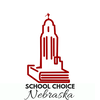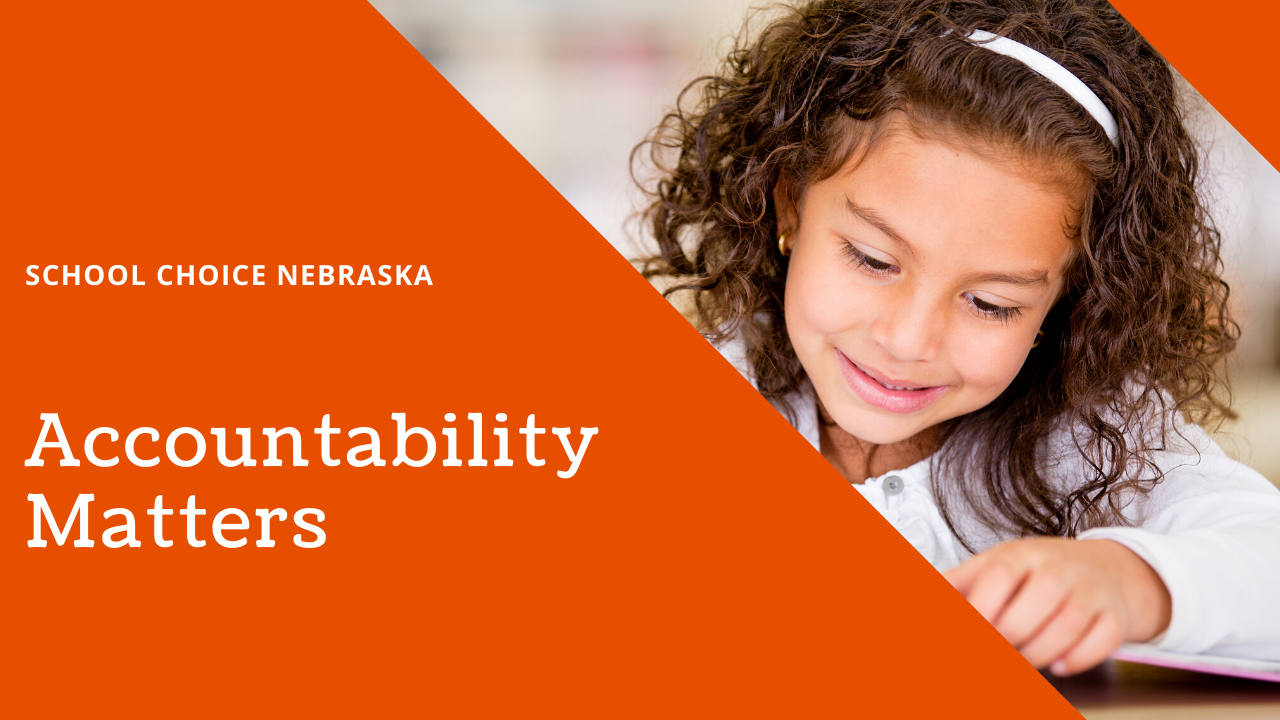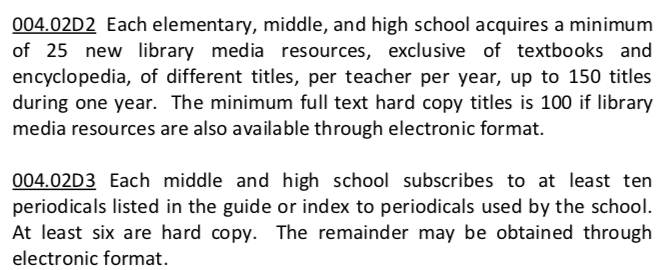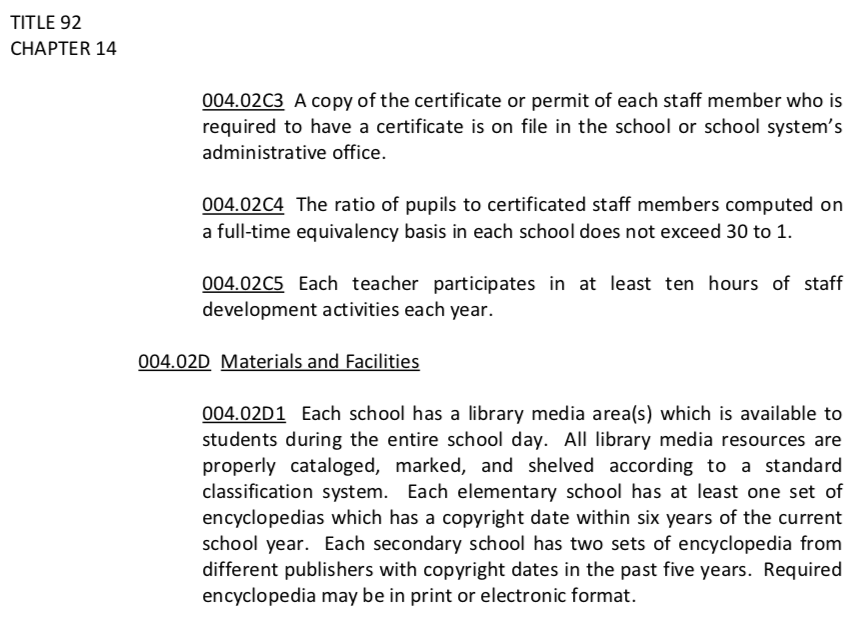|
Regulatory Accountability involves policies and regulations instituted by the government.
Market accountability involves feedback from the people who actually consume your services and products. Regulatory accountability is checklist accountability. You can take a document, see what it requires of you, and check off the items. The public school system prefers this kind of accountability. It’s largely administrative, and it doesn’t require the approval of parents. It doesn’t value agility. It’s top-down. Market accountability is much more difficult to achieve. To be accountable to the market is to figure out what people want and to consistently meet their expectations. That’s tough. Let’s take these two kinds of accountability outside of the public school system to look at them closer. You want to start a restaurant. You’re going to have to deal with both regulatory accountability and market accountability. Regulatory Accountability: Remit taxes, train and compensate employees, keep up with food handling and safety requirements, obey minimum wage laws, allow inspections from the county, follow terms of your lease, file business license paperwork and fees, etc. That’s the easy part. The hard part is dealing with market accountability. Sure, you can file all of your paperwork and meet the terms of your lease, but can you be accountable to customers? You’ll have to figure out what kind of food they want, and you’ll have to prepare it the same way every time they come. You’ll have to train your employees to treat customers well, or your customers will never come back. This is the hard part, and it’s the reason only the best restaurants survive. Very few restaurants go out of business because they don’t comply with regulations. Public schools are good at following regulations. So are private schools. If you look at the NDE website, you’ll find all kinds of regulations for both public and private schools. The following are screenshots of some of the current regulations governing private schools in Nebraska, according to the NDE website.
Private schools have to deal with both regulatory and market accountability because they’re competing with other private schools for the same few customers. Only a few families in Nebraska can afford to send their children to private school, and the schools have to be attractive to those who can choose.
The public schools don’t have to deal with market accountability, and this is a major reason they fight against school choice. What would happen if low- and middle-income families suddenly had the option of sending their children to non-district schools? The district public schools would suddenly be subject to the whims of the market, and that’s the last thing they want. But it’s the best thing for parents and kids. I want to play you a clip from a local news program in Utah where they have public charter schools. Public charter schools are open to all students and they don’t require tuition. Because of their presence, public schools have learned to deal with the hard kind of accountability, and the results are great. In this clip, a principal at a district public high school talks up his school’s offerings because it’s just about time for parents to make their decisions about school for next year.
...Can you hear the difference between reulatory accountability (which administrators in Utah also have to deal with) and market accountability (which prompts district public schools to develop the kinds of programs parents want?)
Before we moved to Nebraska, we lived in Colorado, which has had market accountability in K-12 eductation since 1992 in the form of charter schools. Our kids attended both district and charter schools there, and I can tell you that the environment is totally different. In both kinds of schools, teachers and administrators are keenly interested in what parents want. Of course they still have regulatory accountability, but that’s not what makes the difference. It’s market accountability that matters. When there’s market accountability, all children benefit. The kids in district public schools benefit because principals are suddenly interested in turning their schools into institutions that can compete with every other option out there. It’s a win-win! I can hear the Nebraska administrators from here. They’re saying Whoa whoa whoa--what about the third kind of accountability, school boards elected by the public. In some places, I imagine there might be a tiny bit of accountability that comes from school board members, but here in Nebraska, it doesn’t exist. In fact, from what I’ve seen here in Lincoln, the school board works against parents, not for us. They stand shoulder to shoulder with administrators and even the media to squash the concerns of parents and rubber stamp everything the district wants. Regulatory accountability is nice for government employees, but it can be pretty awful for parents and students. I’m going to pronounce an understatement here: when I ran for school board in Lincoln, the district didn’t want me to win. One day I got a phone call from someone at district administration. She said something like this: “The Lincoln Journal Star called and asked us for some information about your children’s enrollment at LPS. Under policy blah blah blah, we can give certain student information to the media. We’re not calling to ask permission. We’ve already done it. We just wanted to let you know.” Oh, okay. You’re using a regulation to leak minors’ information to the media. Got it. Nice accountability. After the Lincoln Journal Star’s article was printed, containing my kids’ student information, a local radio talk show host called me and asked how the newspaper got the information. I told him about the phone call from the district, and he couldn’t believe it. He was furious on my behalf. Why would the newspaper be in on this regulatory-based effort to intimidate a candidate for school board? Newspaper reporting doesn’t pay much these days, but if you’re friendly to the school district, you can springboard into a lucrative career at the district. Mary Kay Roth worked as a reporter at the Journal Star and then transitioned to LPS to be Communications Director. In 2017, she made $102,451 at the school district. I’m guessing that’s at least double what she made at the Lincoln Journal Star. It’s all so cozy in the regulatory world, free from market accountability. I’m excited for the time when we have market accountability in Nebraska. Innovation will flourish, and more kids will find schools that meet their needs.
0 Comments
Your comment will be posted after it is approved.
Leave a Reply. |
|




 RSS Feed
RSS Feed